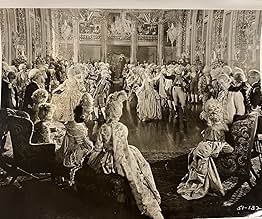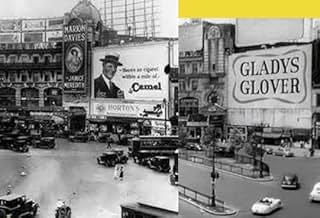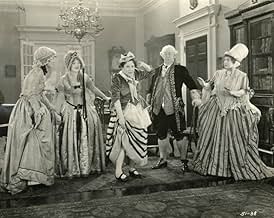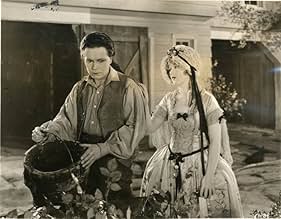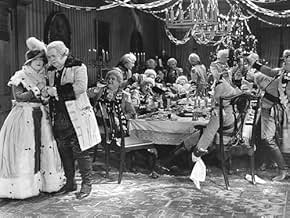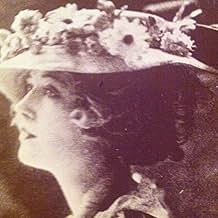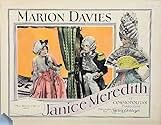Füge eine Handlung in deiner Sprache hinzuIt is 1774, the eve of the American War of Independence. Janice comes from a Tory household. She cavorts with American and British alike, is pursued by Charles Fownes, patriot and friend of ... Alles lesenIt is 1774, the eve of the American War of Independence. Janice comes from a Tory household. She cavorts with American and British alike, is pursued by Charles Fownes, patriot and friend of General Washington. Fields is a comic, drunken British sergeant.It is 1774, the eve of the American War of Independence. Janice comes from a Tory household. She cavorts with American and British alike, is pursued by Charles Fownes, patriot and friend of General Washington. Fields is a comic, drunken British sergeant.
- Regie
- Drehbuch
- Hauptbesetzung
- Auszeichnungen
- 1 wins total
- General Cornwallis
- (as Tyrone Power)
Empfohlene Bewertungen
Very nice costumes for both men and woman, but the action sequences (Paul Revere's ride and Washington crossing the Delaware) are too long and the love story does not generate much heat.
This film was a commercial failure when it was released and there are several indications as to why. First off, Marion Davies seems dying to show her true colors. We see them in a few scenes where she gets to flirt with men, bringing forth her vivacity and endearing qualities. However, in the scenes when she is more serious, her personality dims and her beauty becomes that of the silent starlet, standard and therefore uninteresting. Next, the film seems to take itself too seriously sometimes. It is obvious that massive amounts of money were spend on the making of the film, but that in itself does not make it an art film. There is a scene where fallen soldiers rise and as spirits encourage troops by playing drums and a flute. However, instead of being effective, it just seems strange and out of place. There is also some slapstick at unexpected times such as when two soldiers back into each other slowly and run away when their back touch, this during a dramatic battle scene! The Videobrary release of this film is adequate, though the music score is inappropriately crescendos and alters the mood of scenes. However, thankfully or disappointingly depending on how one looks at it, the score abruptly stops and does not return for over half the film. For first time silent film viewers, this will probably be a massive drawback, but for veterans it will probably be more of an asset.
Davies is awkward, forced, and pouting as a wealthy New Jersey belle; at first, her character is uninvolved in politics - but, she becomes instrumental in founding the triumphant new United States of America. Romantic interest Harrison Ford (as John Brereton) arrives on her estate as a handsome indentured servant ("Charles Fownes") with an intriguing background. Davies and Mr. Ford fall in love; but, Davies is expected to marry goofy, noble neighbor Olin Howlin (as Philemon "Phil" Hennion). Paul Revere (Ken Maynard)'s ride and Washington crossing the Delaware are highlights. After almost an hour, W.C. Fields appears as a British officer encountered by Davies; not even their comic antics can save this thoroughly non-engrossing film.
*** Janice Meredith (12/8/24) E. Mason Hopper ~ Marion Davies, Harrison Ford, Olin Howlin, W.C. Fields
The previous year, Davies made another picture: LITTLE OLD NEW YORK. The film was a success with the critics and public. But if that film just barely managed to skirt a fine line between comedy, romance, and period epic, then JANICE MEREDITH is another matter entirely. The film was long believed lost until a print re-appeared in England several years ago (in fact, all the prints I've seen carry the film's British title of THE BEAUTIFUL REBEL). Watching the surviving print, which is in beautiful condition, you get the feeling that Hearst decided NEW YORK was a success for every reason except Marion Davies! In this Revolutionary War romance, we are treated to lavish re-creations of New Jersey plantations, Philadelphia ballrooms, and Parisian palaces (Joseph Urban's art direction is outstanding). We witness Paul Revere's ride, the battles of Lexington, Concord, and Trenton. George Washington crosses the Delaware and Harrison Ford (no -- not that one) saves the country. It all looks spectacular, and it ought to: Hearst shot the works for this film and in terms of sheer spectacle, there are parts of JANICE MEREDITH that rival any other film of the era -- including INTOLERANCE and NAPOLEON. Money is everywhere, and director E. Mason Hopper does an admirable job of making sure every bit of it shows on the screen, but where is Marion Davies amid all this historical hoopla? Beats me. You'll have to go a long way to find another film that's so un-suited to its star's talents. In the first few minutes of the film, there are dim traces of her comic touch, but it's soon overwhelmed by the plot and all we get is spectacle, spectacle, spectacle that lumbers on for a staggering two hours and twenty minutes. Unfortunately, Marion Davies was one star who could never be at her best in a spectacle. Her talents were always small scale, and against a normal background her subtle and humorous nature shined. Not here. There's so much going on in JANICE MEREDITH that Davies practically becomes a supporting player in a film that was supposed to be designed to showcase her talents. I swear, the aforementioned Harrison Ford, her leading man and love interest, has more screen time.
Because of such lopsided priorities, the end result in JANICE MEREDITH is little short of a grandiose misfire, and very close to a spectacular disaster. And yet, once one has adjusted to the mind boggling ineptitude of the conception, there's a lot of pleasure to be found in watching this gold-plated Titanic go down. It's the film equivalent of the Taj Mahal: a grand, empty monument to one man's love for a woman. An audience today probably couldn't even begin to understand the emotion that inspired it: we're left with an object that's baffling, mysterious, yet strangely inspiring. Maybe it is all wrong, but it aspires to nobility, actually believes in its greatness, and marches forth with a sincerity that is overwhelming. You can't help but get wrapped up in its woozy, drunken, grandiosity. And in truth, there are five whole great minutes in JANICE MEREDITH, which occur about an hour into the film when Davies attempts to secure the release of Ford by flirting with a drunken British officer, played by none other than W. C. Fields. It was his first appearance in a feature film, and the great icon is already completely formed. Davies' eye flutters vs. Fields' inept bungling succeed in raising JANICE MEREDITH -- however briefly -- to something approaching true grandeur, and once again proves that Davies real talent was as a comic (and it was only the best who could hold their own against Fields). That her talent went so largely unexploited is one of those tragedies that will forever be a blot on the names of William Randolph Hearst and Hollywood. For confirmation of that talent, see SHOW PEOPLE (1928), MARIANNE (1929), and NOT SO DUMB (1930).
Wusstest du schon
- WissenswertesFilm debut of Ken Maynard.
- VerbindungenFeatured in Captured on Film: The True Story of Marion Davies (2001)
Top-Auswahl
Details
Box Office
- Budget
- 1.000.000 $ (geschätzt)
- Laufzeit
- 2 Std. 33 Min.(153 min)
- Farbe
- Sound-Mix
- Seitenverhältnis
- 1.33 : 1

